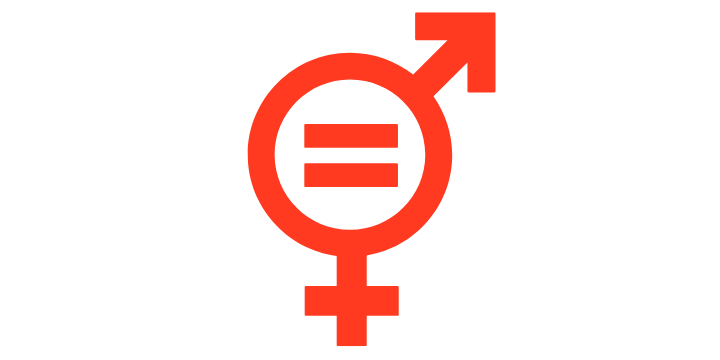In today’s world, environmental concerns are a top priority for many businesses around Ireland, and we at iSupply recognise the need to prioritise sustainable practices. The depletion of natural resources and the negative effects of deforestation make it crucial to switch to sustainable alternatives, and recycled paper is one such option. This article delves into the benefits of using recycled paper, including its environmental, economic, quality, and performance advantages.
Understanding Recycled Paper
Paper is an essential part of our daily lives, and we use it for a variety of purposes such as writing, printing, packaging, and more. However, the production of paper has a significant impact on the environment, as it involves cutting down trees and using a lot of energy and water. This is where recycled paper comes in, as it is a sustainable alternative to traditional paper that helps reduce waste and conserve resources.
What is Recycled Paper?
Recycled paper is a type of paper that is made from paper products that have been used and discarded. These could include paper bags, cardboard boxes, newspapers, and office waste paper. The recycling process involves breaking down these materials into pulp and removing any contaminants such as ink, staples, or glue. This pulp is then used to produce new paper products, such as notebooks, envelopes, and more.
Recycled paper comes in different grades, depending on the quality of the paper used in the recycling process. For example, post-consumer recycled paper is made from paper that has already been used by consumers, while pre-consumer recycled paper is made from paper scraps and trimmings from the manufacturing process.
How is Paper Recycled?
The recycling process involves several steps, from collection to manufacturing. First, the used paper is collected from various sources such as offices, schools, and households. It is then sorted and transported to a recycling plant where it is sorted again to remove any contaminants. This sorting process is essential, as it ensures that only high-quality paper is used in the recycling process.
Next, the paper is shredded and mixed with water to create pulp. The pulp is then screened to remove any remaining contaminants and refined to make high-quality recycled paper. The refining process involves pressing the pulp to remove excess water and drying it to create sheets of paper. These sheets are then cut and packaged to be used in various paper products.
Recycling paper has many benefits, including reducing the amount of waste in landfills, conserving natural resources, and reducing the carbon footprint of paper production. It also helps create jobs in the recycling industry and supports the growth of a sustainable economy.
So, the next time you use paper, consider using recycled paper instead. It may seem like a small step, but it can make a big difference in preserving our environment for future generations.
Environmental Advantages of Recycled Paper
Recycling paper is a simple yet effective way to reduce our impact on the environment. By using recycled paper, we can help to reduce deforestation, conserve energy and water, lower greenhouse gas emissions, and decrease waste in landfills.
Reducing Deforestation
The use of recycled paper helps to reduce the demand for virgin wood pulp, thereby reducing the need for deforestation. Deforestation not only destroys natural habitats and ecosystems but also contributes to climate change by releasing greenhouse gases into the atmosphere. By using recycled paper, we can help to protect our forests and the wildlife that depends on them.
Did you know that the world loses an estimated 18 million acres of forests every year? That’s equivalent to 27 soccer fields every minute! By using recycled paper, we can help to reduce this number and protect our planet’s precious resources.
Conserving Energy and Water
The production of recycled paper requires less energy and water than making paper from virgin wood pulp. Recycled paper manufacturing uses up to 50% less energy and 90% less water than traditional paper manufacturing, making it a more sustainable alternative.
Did you know that it takes approximately 3 gallons of water to produce a single sheet of paper? By using recycled paper, we can help to conserve this valuable resource and reduce our impact on the environment.
Lowering Greenhouse Gas Emissions
The use of recycled paper reduces the amount of waste that ends up in landfills. When organic waste decomposes in landfills, it releases methane gas, which is a potent greenhouse gas. By using recycled paper, we can significantly reduce the amount of waste going to landfills and lower greenhouse gas emissions.
Decreasing Waste in Landfills
The majority of the paper waste generated in offices and households is sent to landfills. This not only takes up valuable space but also releases harmful chemicals into the environment. Using recycled paper reduces the amount of paper waste and helps to conserve natural resources.
Overall, using recycled paper is a simple yet effective way to reduce our impact on the environment. By choosing recycled paper, we can help to protect our forests, conserve energy and water, lower greenhouse gas emissions, and decrease waste in landfills.
Economic Benefits of Using Recycled Paper
Recycling paper has several economic benefits that extend beyond just cost savings for businesses. In this article, we will discuss the positive impact that using recycled paper can have on the economy and the environment.
Cost Savings for Businesses
Using recycled paper can help businesses save money on raw material costs. Recycled paper is often less expensive than virgin paper, making it an economical choice for businesses looking to reduce expenses. Additionally, using recycled paper can help companies meet their sustainability goals, which can lead to increased customer loyalty and a positive brand image.
Supporting the Recycling Industry
By using recycled paper, we are supporting the recycling industry, which provides jobs and contributes to the economy. The recycling industry plays an essential role in reducing waste, conserving natural resources, and promoting sustainability. When businesses choose to use recycled paper, they are helping to create demand for recycled materials, which can help to increase the profitability of recycling companies and create more jobs in the industry.
Encouraging Sustainable Practices
By making a conscious choice to use recycled paper, we encourage sustainable practices and contribute to a healthier planet. This sets an excellent example for other businesses and individuals to follow and helps to build a more sustainable future. By reducing our reliance on virgin paper, we can help to conserve forests and reduce greenhouse gas emissions associated with paper production. Additionally, using recycled paper can help to reduce the amount of waste that ends up in landfills, which can help to extend the life of these facilities and reduce the need for new ones.
In conclusion, using recycled paper has several economic benefits that extend beyond just cost savings for businesses. By supporting the recycling industry and encouraging sustainable practices, we can help to create a more prosperous and environmentally-friendly future. So, the next time you need to purchase paper, consider choosing recycled paper and make a positive impact on the economy and the environment.
Quality and Performance of Recycled Paper
Recycled paper is an excellent choice for those who want to reduce their environmental impact without sacrificing quality. In the past, recycled paper was often perceived to be of lower quality than non-recycled paper, but this is no longer the case. With advances in recycling technology, recycled paper can now match or even exceed the quality of non-recycled paper.
Recycled paper is available in a range of grades and finishes, making it suitable for a variety of applications. Whether you need paper for printing, packaging, or stationery, there is a recycled paper option that will meet your needs.
Advances in Recycling Technology
The recycling industry has made significant advancements in technology, enabling the production of high-quality recycled paper. One of the most significant advancements is the use of de-inking agents, which remove ink and other contaminants from recycled paper. This process ensures that the final product is clean and free of impurities.
Advanced pulping techniques have also improved the quality and performance of recycled paper. The pulping process breaks down the paper fibers, creating a pulp that can be used to make new paper. By using advanced pulping techniques, the resulting pulp is of higher quality, resulting in a higher quality final product.
Finally, high-quality sorting equipment has improved the quality of recycled paper. This equipment can sort paper by type, color, and quality, ensuring that only the best paper is used in the recycling process.
Myths and Misconceptions
Despite the many benefits of recycled paper, there are still some myths and misconceptions surrounding it. One common myth is that recycled paper cannot be recycled again. However, this is not true. Recycled paper can be recycled multiple times, making it an excellent choice for those committed to sustainability.
Another misconception is that recycled paper is not as bright as non-recycled paper. However, recycled paper comes in a wide range of brightness levels, making it suitable for various applications. In fact, some recycled paper is even brighter than non-recycled paper.
In conclusion, recycled paper is an excellent choice for those who want to reduce their environmental impact without sacrificing quality. With advances in recycling technology, recycled paper can now match or exceed the quality of non-recycled paper. So, next time you are in the market for paper, consider choosing recycled paper for a more sustainable future.
Conclusion
Switching to recycled paper is an easy and effective way to reduce our impact on the environment, save money, and promote sustainable practices. The use of recycled paper helps to conserve natural resources, reduce waste, and lower greenhouse gas emissions. With advances in recycling technology, recycled paper now matches or exceeds the quality of non-recycled paper. It is time for us to take a step towards a more sustainable future by choosing recycled paper as our preferred paper choice.
Learn more about eco-friendly printing methods here.



